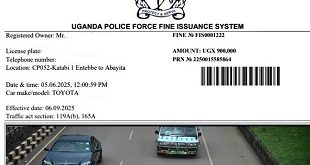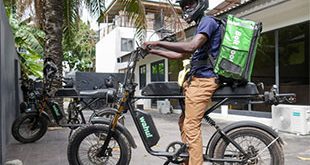
Kampala, Uganda | THE INDEPENDENT | Director General of the External Security Organization (ESO), David Bwangamoe Pulkol says countries in East Africa not to restrict their citizens from interacting socially and economically.
Pulkol, the Executive Director of the Africa Leadership Institute, interaction among the citizens of the regional economic bloc can help them to appreciate the core values of regional integration.
Pulkol was part of speakers at a public dialogue under the theme: “East African Community and the Battle for the Soul of DRC: Implications for Interstate Relations”.
The dialogue held at the Uganda Management Institute (UMI) in Kampala comes as the revived East African Community marks 25 years of existence.
The Treaty for the Establishment of the East African Community (EAC) was signed on 30th November 1999 in Arusha, Tanzania, and came into force on 7th July 2000, following its ratification by the three original Partner States: the Republic of Kenya, the Republic of Uganda, and the United Republic of Tanzania.
East African Common Market Protocol provides for the free, safe, and orderly movement of individuals and effective migration management. However there have been tendencies when member countries have imposed restriction in movement of the people and therefore affecting interactions among citizens in the member states.
Pulkol explained that while post-colonial states have focused heavily on sovereignty, law, and order, many citizens within these nations have moved beyond these limitations, fostering interactions across borders independently of their governments.
He urged East African governments to dismantle barriers that hinder integration, instead promoting harmonization and deregulation.
According to Pulkol, such measures would support and strengthen the natural connections already created by local populations rather than obstructing them.
The dialogue at UMI attracted participants who deliberated on regional security, with a particular focus on the ongoing insecurity in the Democratic Republic of Congo (DRC).
The DRC has long been plagued by conflicts driven by economic interests, ethnic tensions, political manipulation, and governance challenges.
Statistics reveal that the DRC is currently contending with nearly 100 armed groups, making it one of the countries with the highest number of internally displaced persons, estimated at approximately 6.2 million.
However, in March 2022 Violence escalated between government-led forces and non-state armed groups. As a result, an estimated 6.2 million people have been displaced. The eastern provinces of North Kivu and Ituri have been particularly affected, with ongoing violent clashes leading to prolonged displacement.
Informal displacement sites emerged around Goma, the capital of North Kivu, in eastern DRC. Many others have sought refuge in South Kivu Province. Additionally, areas such as Beni in North Kivu and Bunia in Ituri are experiencing escalating violence and human rights violations caused by armed groups.
Speaking to URN on the sidelines of the dialogue, Pulkol described the DRC’s 2022 accession to the East African Community (EAC) as a strategic move.
He noted that this decision meant the DRC would not face its security challenges alone but would benefit from the collective support of East African member states.
DRC joined the East African Community (EAC) in 2022 to become its 7th Partner State. DRC was confirmed during the Summit of EAC Heads of State at their 19th Ordinary Summit held on Tuesday, 29th March 2022. This was done following a recommendation by the Council of Ministers.
In July 2022, the EAC deployed a regional force to oversee the withdrawal of armed groups, including M23, from areas in eastern DRC. However, just over a year later, tensions arose between the regional force and the Congolese government, prompting the withdrawal of troops.
The contention revolved around the force’s mandate, with the DRC government advocating for an assertive approach to defeating over 120 armed groups, while the regional force opted for non-offensive peacekeeping operations.
Responding to the matter, Dr. Gerald Siranda, a member of the East Africa Legislative Assembly (EALA), explained that the mission of the Eastern African Standby Force was to pacify the DRC rather than engage in direct combat with armed groups—a distinction the DRC government struggled to accept.
Margret Zziwa, the former speaker of EALA, highlighted the importance of regional unity in ensuring peace in the DRC. She noted that while the DRC is a newcomer to the EAC, all member states have a vested interest in securing stability in the region, given the DRC’s significant role as a trading partner.
Will Kaberuka, a Professor at Makerere University Business School said that as East African countries push for integration, they must first focus on integration internally and make people not identify by tribes but rather identify as countrymen.
*****
URN
 The Independent Uganda: You get the Truth we Pay the Price
The Independent Uganda: You get the Truth we Pay the Price



